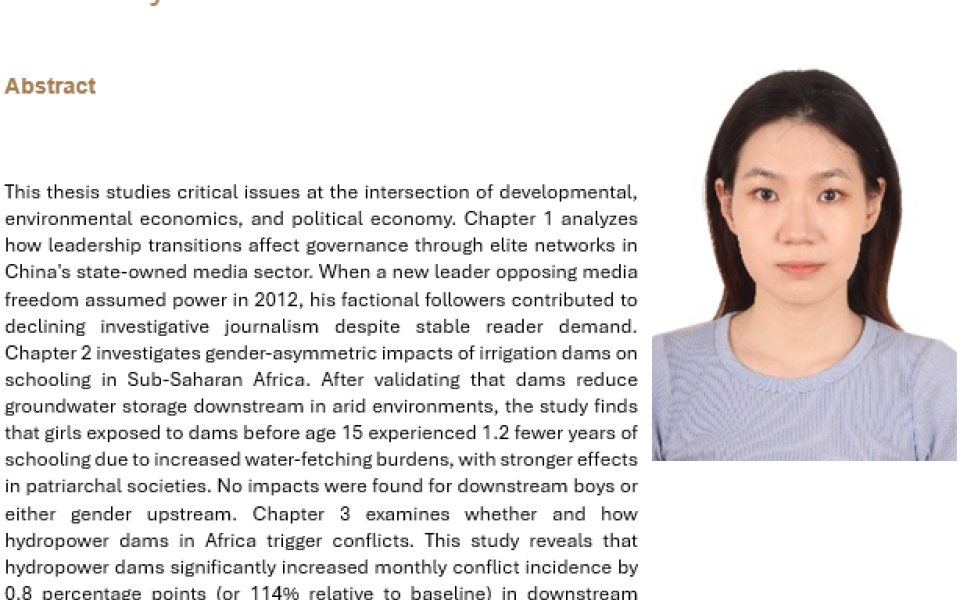Abstract
This thesis studies critical issues at the intersection of developmental, environmental economics, and political economy. Chapter 1 analyzes how leadership transitions affect governance through elite networks in China's state-owned media sector. When a new leader opposing media freedom assumed power in 2012, his factional followers contributed to declining investigative journalism despite stable reader demand. Chapter 2 investigates gender-asymmetric impacts of irrigation dams on schooling in Sub-Saharan Africa. After validating that dams reduce groundwater storage downstream in arid environments, the study finds that girls exposed to dams before age 15 experienced 1.2 fewer years of schooling due to increased water-fetching burdens, with stronger effects in patriarchal societies. No impacts were found for downstream boys or either gender upstream. Chapter 3 examines whether and how hydropower dams in Africa trigger conflicts. This study reveals that hydropower dams significantly increased monthly conflict incidence by 0.8 percentage points (or 114% relative to baseline) in downstream areas. These conflicts were concentrated near borders and involved organized armed groups. No such effect was observed in upstream regions. A major mechanism operates through reduced downstream water availability, intensifying competition for scarce domestic water resources.
